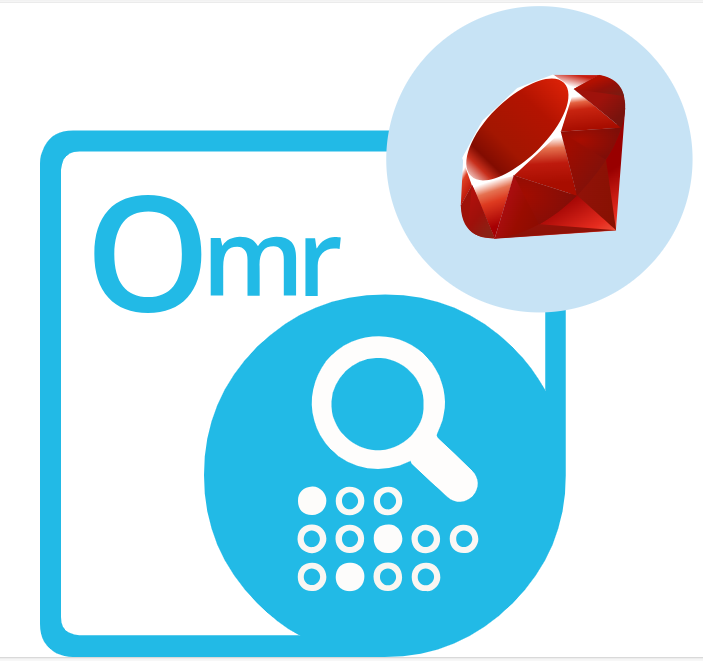
Aspose.OMR Cloud SDK for Ruby
Ruby REST SDK for Integrating OMR Functionality into Apps
Ruby API for Integrating OMR Functionality into Ruby Apps, Allowing Software Developers to Design & Recognize Data from OMR Forms, Answer Sheets, Surveys, Tests, and More.
As technology continues to advance, developers seek efficient tools that simplify complex tasks. Aspose.OMR Cloud SDK for Ruby stands out as a powerful solution, offering an array of cutting-edge features tailored to streamline optical mark recognition (OMR) processes. This cloud-based SDK offers a range of cutting-edge features, making it a top choice for software developers seeking efficient and accurate OMR solutions. Let's delve into the leading features that set Aspose.OMR apart.
Aspose.OMR Cloud SDK for Ruby emerges as a go-to solution for software developers seeking a reliable, accurate, and scalable OMR processing tool. It supports several advanced features like accurate OMR recognition, generate customize OMR templates, robust security measures and many more. It leverages the flexibility and scalability of cloud computing. With this SDK, developers can effortlessly integrate OMR capabilities into their Ruby applications without the need for complex on premise installations. This cloud-based approach ensures optimal performance and accessibility.
The Aspose.OMR Cloud SDK for Ruby offers a well-documented and developer-friendly API, simplifying the integration process for Ruby applications. With clear documentation and code examples, developers can quickly grasp the functionalities and implement them within their projects. It emerges as a comprehensive and user-friendly solution for software developers seeking powerful OMR capabilities. Its cloud-based approach, versatile file format support, accurate recognition, customizable templates, security measures, seamless integration with Ruby applications, and real-time feedback make it a standout choice in the world of OMR processing.
Getting Started with Aspose.OMR Cloud SDK for Ruby
The recommend way to use Aspose.OMR Cloud SDK for Ruby is via RubyGems. Please use the following command for a smooth installation.
Install Aspose.OMR Cloud SDK for Ruby via RubyGems.
gem install ./aspose_omr_cloud-18.8.0.gem Install Aspose.OMR Cloud SDK for PHP via GitHub
git clone https://github.com/aspose-omr-cloud/aspose-omr-cloud-ruby.gitYou can download the library directly from Aspose.OMR Cloud SDK for Ruby product page
Perform OMR Operations via Ruby API
The Aspose.OMR Cloud SDK for Ruby leverages the cloud environment, allowing software developers to harness the benefits of cloud-based OMR processing. This not only ensures scalability but also eliminates the need for extensive local infrastructure, making OMR tasks more accessible and cost-effective. Developers can perform recognition of scanned photos and images, perform OMR on rotated & perspective (within 25 deg) photos, export of OMR results to CSV file format and many more.
Extract and Recognize Data via Ruby API
Aspose.OMR Cloud SDK for Ruby has provided several important features for loading and extracting data from various types of images as well as scanned documents inside Ruby applications. Extracting and recognizing human-marked data using the Ruby SDK involves several steps, including setting up your environment, creating a template, and making API calls for recognition. The following example shows how to extract and recognize human-marked data using the Ruby Cloud SDK.
How to Extract and Recognize Human-Marked Data via Ruby?
require 'aspose_omr_cloud'
# Set up API credentials
config = AsposeOMRCloud::Configuration.new
config.app_sid = 'your_app_sid'
config.app_key = 'your_app_key'
# Create an instance of the API
api = AsposeOMRCloud::OmrApi.new(config)
# Specify the file name and path
file_name = 'your_image.jpg'
# Upload the file to the Aspose Cloud storage
api.upload_file(AsposeOMRCloud::UploadFileRequest.new(file_path: file_name))
# Set up template parameters
template_id = 'your_template_id'
template_params = AsposeOMRCloud::Template.new(
name: 'Your Template Name',
template_data: '...template data...',
template_width: 600,
template_height: 400
)
# Recognize the human-marked data in the image using the template
response = api.post_run_omr_task(AsposeOMRCloud::RunOmrTaskRequest.new(
name: 'Your Task Name',
template_id: template_id,
image_file: file_name,
template: template_params
))
# Access recognition results
results = response.body.recognition_results
puts "Recognition Result: #{results}"
Versatile File Format & Real-time Results
One of the standout features is the SDK's support for a variety of file formats. Whether it's PDFs, images, or other common document formats, Aspose.OMR Cloud SDK for Ruby seamlessly processes them, providing flexibility in handling different types of input files. The SDK also provides real-time feedback, allowing software developers to monitor and analyze OMR processing results promptly. This feature enhances the efficiency of OMR applications, enabling quick adjustments and improvements as needed.
